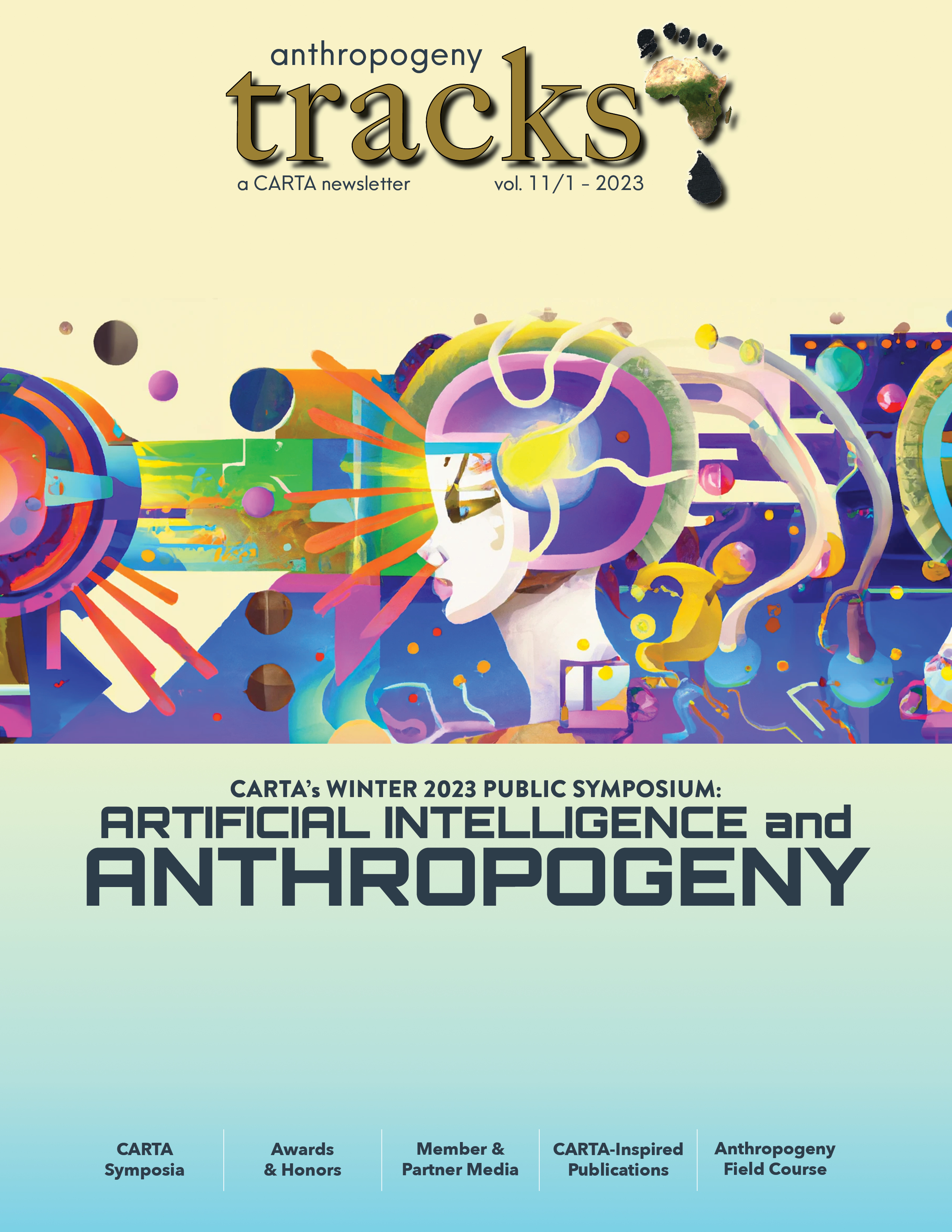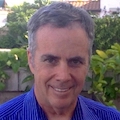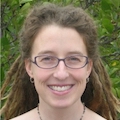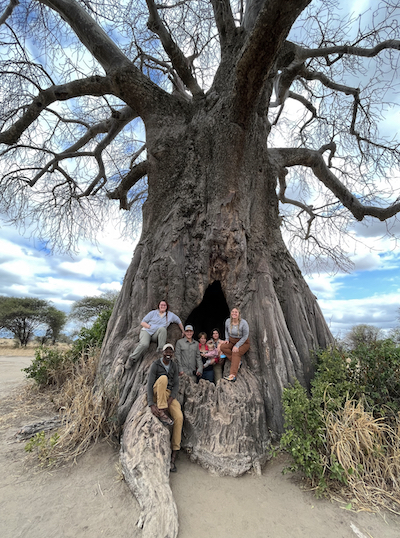"Inside" CARTA's 2023 Winter Newsletter:
- Message from the Executive Co-Director
- Upcoming Symposia
- Awards & Honors
- Member & Partner Media
- CARTA-Inspired Publications
- 2022 Symposia Retrospective
- 2022 Anthropogeny Field Course
- Osher Master Class
- In Memoriam: CARTA Member Chuck Stevens
- New Calendar & Zoom Backgrounds
- Support CARTA
- Follow Us on Social Media
For over 200,000 years, the global population of Homo sapiens remained under 10 million individuals, not dissimilar to great ape population numbers until the 20th century. These relatively low population numbers persisted until the beginning of farming around 12,000 years ago. However, with the adoption of agriculture, the human population began to swell, reaching 1 billion individuals in the mid-1800s. Fewer than 200 years later, there are now over 8 billion of us.
This huge increase in the number of humans, combined with “cumulative culture” (humanity’s distinct, second inheritance system that more recently includes written language and global communication), has allowed for the development of ever more powerful technology. Starting in the last century, humans invented information technology, which has undergone its own exponential growth.
CARTA’s March 3rd public symposium, “Artificial Intelligence and Anthropogeny,” co-chaired by Patricia Churchland (University of California, San Diego) and Terry Sejnowski (Salk Institute for Biological Studies & University of California, San Diego), will feature a panel of eminent researchers working on various aspects of A.I. and machine learning. These experts will discuss the potential insights these technological advances provide regarding the origins of our species, including the underpinnings of human language.
For CARTA’s May 19th public symposium, we are excited to announce our first in-person symposium since the beginning of the COVID-19 pandemic. “The Role of Myth in Anthropogeny,” co-chaired by Pauline Wiessner (Arizona State University & University of Utah) and Daniel Povinelli (University of Louisiana, Lafayette), will return to the Salk Institute for Biological Studies in La Jolla, CA. We look forward to seeing many of you there or viewing via the live stream.
Within this newsletter, you’ll find varied accounts of our latest CARTA activities, awards and honors received by CARTA members, and recent CARTA-inspired publications. As an added bonus, you’ll find our 2023 CARTA calendar and digital backgrounds, replete with landscapes and creatures reminiscent of those our ancestors encountered when the planet was slightly less crowded. I hope you enjoy the whole of it.
I end by expressing my profound gratitude to the many CARTA supporters who have so generously given us support over the years and again at the end of 2022. I thank you all for helping ensure the continued operation of this unique organization, and hope to have the opportunity to thank some of you in person before too long.

Pascal Gagneux, Ph.D.
Executive Co-Director
Center for Academic Research & Training in Anthropogeny
Join CARTA in 2023 as we continue to explore the origin of humans and the implications for the past, present, and future of our species.
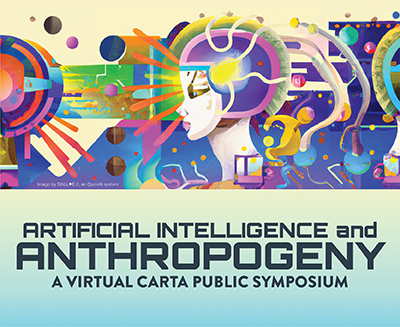
Artificial Intelligence and Anthropogeny
Friday, March 3, 2023Registration is Open!

The Role of Myth in Anthropogeny
Friday, May 19, 2023Save the Date!
Member Awards & Honors
The following external awards and honors were received by CARTA Members and shared with us since our last newsletter. You may learn more about each CARTA Member by clicking on their name to view their full CARTA profile.
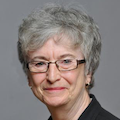
Leslie Aiello, University College London
received the 2022 Franz Boas Award for Exemplary Service to Anthropology from the American Anthropological Association (AAA)

Jean-Pierre Changeux, Collège de France & Institut Pasteur
awarded the 2023 Erasmus Medal of the Academia Europaea

Katerina Harvati-Papatheodorou, University of Tübingen
elected as member of the German National Academy of Sciences Leopoldina
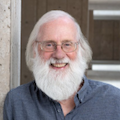
Tony Hunter, Salk Institute for Biological Studies
received the 2022 American Association for Cancer Research (AACR) Lifetime Achievement Award in Cancer Research

Svante Pääbo, Max Planck Institute for Evolutionary Anthropology
recipient of the Nobel Prize in Physiology or Medicine “for his discoveries concerning the genomes of extinct hominins and human evolution”
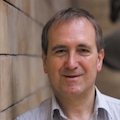
Chris Stringer, Natural History Museum, London
appointed Commander of the Order of the British Empire (CBE) for services to the understanding of human evolution
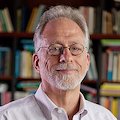
Michael Tomasello, Max Planck Institute for Evolutionary Anthropology
recipient of the 2022 David E. Rumelhart Prize from the Cognitive Science Society
Student Awards & Honors
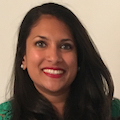
Tanushree Agrawal, Psychology
selected to be the Student Member on the 2022 Executive Board of the National Society for Music Perception and Cognition

Nicholas Nelson, Cognitive Science
received the NIH Ruth L. Kirschstein National Research Service Awards (NRSA) Individual Predoctoral Fellowship and the Kavli-Helinski Endowed Graduate Fellowship (UCSD)
Below is a selection of media stories from our CARTA members and partners:
 Barry Bogin: Cuppa With a Scientist podcast
Barry Bogin: Cuppa With a Scientist podcast
- Keolu Fox: Wayfinding through the Human Genome (National Geographic podcast)
- Rusty Gage:
- Pascal Gagneux and Ajit Varki: Fourteen Discoveries Made About Human Evolution in 2022
- Carol Marchetto and Rusty Gage: Modeling Neuropsychiatric Disorders in a Dish (Stem Cell Reports podcast)
- Carmel O’Shannessy: Flat white lie: why people use an alias to order coffee
- Martin Rees: If science is to save us
- Fiona Stewart and Alexander Piel (GMERC):
A selection of CARTA-inspired publications submitted by CARTA Members, which acknowledge CARTA's role in contributing to the research described. CARTA members are listed in bold.
If you missed any of CARTA’s symposia in 2022, or would like to enjoy them again, you will find them permanently archived on multiple online sites, including CARTA, UCSD-TV, iTunes, and YouTube. These recordings contain high-quality closed captions to enhance your viewing experience. Closed captions this year were made possible through the generosity of CARTA Patrons Ingrid Benirschke-Perkins and Gordon Perkins, who are viewers like you. If you are interested in sponsoring or otherwise contributing to a future CARTA symposium, please visit our support page.
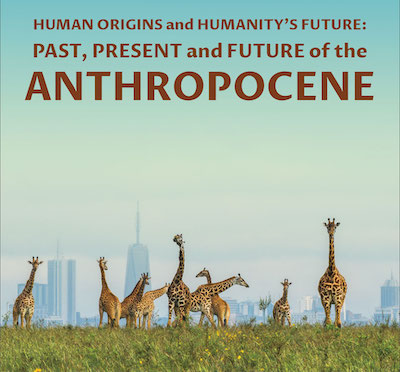
Human Origins and Humanity's Future: Past, Present and Future of the Anthropocene
Saturday, March 5, 2022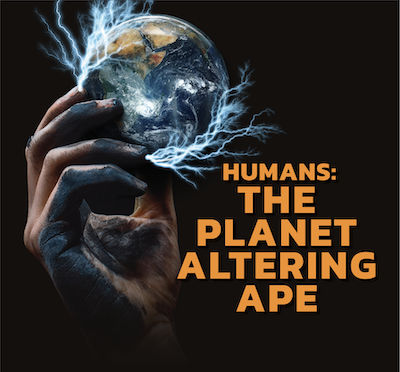
Humans: The Planet Altering Ape
Friday, May 13, 2022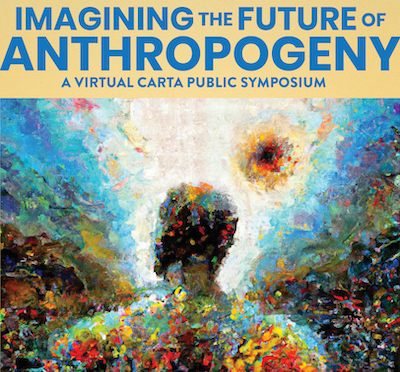
Imagining the Future of Anthropogeny
Saturday, November 19, 2022
Baobab tree in Tarangire National Park, Tanzania with CARTA field course students, and GMERC and Dorobo Safari affiliates
Written by Katie Van Alstyne, Anthropogeny Specialization Track Graduate Student (UC San Diego Department of Psychology).
The field course in Tanzania offered a truly unique and immersive experience, giving us students the opportunity to peer through the looking glass into the environment that both challenged and sustained our ancient forebears. Through our interactions with physical relics of the deep past, our immersive experience with the natural world of our ancestors, and our discussions with local Tanzanians and the Maasai, the field course offered new perspectives through which I could ponder, process, and reprocess countless aspects of the human experience. The psychologist in me latched particularly strongly to an idea that, as humans, our lifestyles and relevant behaviors are somewhat determined by where we are situated within our hierarchy of needs. According to Maslow’s theoretical framework, humans are motivated to satisfy their needs in a hierarchical fashion in which physiological and safety needs must be met prior to progressing toward meeting the need to feel loved and belong, to boost self-esteem, and finally to become an enlightened ‘self-actualized’ being. It became apparent to me just how different modern humans and our ancestors were situated within the hierarchy one afternoon on safari when our guide, Douglas, asked us all to find a spot, out in the open, and sit for ten minutes.
This ‘moment of meditation’ was incredibly eye-opening for me, as I sat and imagined how vulnerable our forebears must have felt, completely exposed in the wide-open Serengeti, while I felt sheltered and safe, just because I am accustomed to feeling this way. Back at home, there are systems in place to secure every need I have in the hierarchy, freeing my mind up to wonder, and to worry about largely inconsequential things. We don’t need to worry about our immediate safety or what our next meal will be, and we have the internet to answer just about any question we could pose, so we are losing touch with even the most basic survival skills and instincts.
Given that the time spent meditating in the field allowed me to dissect my internal experience a bit further, I wanted to get a little personal and probe the private thoughts of others I encountered on the trip. To get at this concept, I decided to ask people about the thoughts that came to mind when they were alone, away from any significant stimuli to interact with or respond to. Many of us from the ‘Western’ group responded with existential ponderings, evaluations of self-worth and career satisfaction, and considerations regarding the welfare of our immediate family members. Douglas’s response was quite different, and it came with little to no hesitation; he indicated that he finds himself returning to the question of how to “take only what you need.” He even went a step further to say that if he were given the option to choose a superpower, he would essentially sprinkle some magic dust on the human population rendering everyone incapable of taking more than they need.
GMERC camp in Issa Valley, Tanzania with CARTA field course students, and GMERC faculty, staff and family
I also asked Douglas whether he had any insight into how the Hadzabe might have responded to a similar question regarding their private, internal thoughts and goals. With confidence, Douglas noted that the Hadzabe would likely respond that they are thinking about their land and all the ways they could secure a hold on their territory. This made sense to me, given that several instructors on the trip had spoken to me at length about the long and arduous history the Hadzabe have had, struggling to maintain control of their homeland while the government has tried to eradicate them and their way of life. In fact, governmental bodies have been attempting to settle the Hadza and force them to adopt farming for almost a century. Given that their most basic needs on the hierarchical pyramid are not met, with their home and physical environment constantly being threatened, it follows that their internal experiences are quite different from Westerners and other Tanzanians.
Being “air-dropped” into the Old World invited countless new questions, with far fewer being met with certain answers than those we will undoubtedly be left to ponder for millennia. Throughout the course, I was constantly struck by the contrast between how much we truly don’t know about our origins and by how much we have been able to glean from such obscure pieces of evidence. What an incredible species we have become, to have the capacity to recognize ancient bone fragments, artifacts, and behavioral patterns among a sea of sediment, to collect countless pieces of our origin story, and to maintain a sense of wonder and motivation to solve the human puzzle, all whilst knowing the puzzle is largely incomplete, with numerous pieces we have yet to uncover.
During Fall 2022, CARTA Members Charles Kennel, Adena Schachner, Carol Marchetto (CARTA Internal Advisor), Margaret Schoeninger (CARTA Co-Director Emeritus), and Pascal Gagneux (CARTA Executive Co-Director) shared their anthropogeny expertise with the community in the lecture series, "Master Class II: An Anthology of Anthropogeny," offered through UC San Diego Extension's Osher Lifelong Learning Institute.
These "Anthology of Anthropogeny" talks and other past Osher talks are now available online.
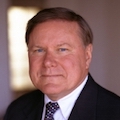
Charles F. Kennel, Scripps Institution of Oceanography and University of Cambridge
"The Coming Crisis of the Anthropocene"
This talk will broadly trace connections between past and present human exploitation of the environment, the coming crisis of the Anthropocene and what we humans can do to alleviate the crisis.
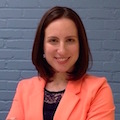
Adena Schachner, University of California, San Diego
"Music, Dance, Evolution: The Origins and Consequences of Human Musicality"
Music and dance are cultural universals and begin early in infancy. In this talk, we'll explore the origins of these fundamentally human behaviors, from an evolutionary, cognitive, and developmental perspective. Why can humans move to a beat, while many other species cannot? What can children’s early development tell us about the musical mind? And what consequences does musicality have, for human social and even moral behavior?
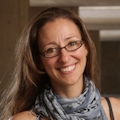
Carol Marchetto, University of California, San Diego
"Stem Cells and Human Evolution"
Comparative analyses of brain cells in closely related species can shed light on changes occurring during evolution. The study of post-mortem brains of nonhuman primates (NHPs) has been limited and often does not recapitulate important species-specific developmental hallmarks. This talk will discuss new technology to investigate the development of live neurons from human and nonhuman primates and compare specific cell behaviors such as migration and maturation. We show differential migration patterns in human neural progenitor cells compared to those of chimpanzees and bonobos, suggesting changes related to maturation timing in human neurons. The strategy proposed here lays the groundwork for further comparative analyses between humans and NHPs and opens new avenues for understanding the differences in the neural underpinnings of cognition and neurological disease susceptibility between species.
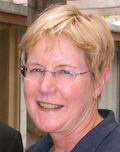
Margaret Schoeninger, University of California, San Diego
"Evolution of the Human Diet"
This lecture will discuss the evolution of the human diet in a comparative setting. It will highlight the importance of cultural inventions from hunting prey much larger than ourselves to processing and cooking food. All indications are that humans are now biologically dependent on the cultural practice of cooking.
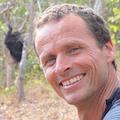
Pascal Gagneux, University of California, San Diego
"One Health and Emerging Diseases"
This talk will address the latest insights into the origin of humans and how this single species of primate became a planetary force. I will discuss biological aspects ranging from molecules (e.g., DNA, glycoproteins, antibodies, etc.) to societies (e.g., nature deficit syndrome, habitat destruction, field biology, agricultural and medical practice, and emerging diseases).
The notion of "One Health," a holistic approach to the health of ecosystems, non-human animal species and humans, is getting a lot of traction. The ongoing COVID-19 pandemic and the more recent monkey pox out-outbreak are just two examples of spill-over infections and the countless ways in which human activities affect health at a planetary level. The combination of climate change, the need to feed 9 billion people, large scale ecological disturbance, injustice and inequity, and global mobility leave us with many difficult decisions if we hope to prevent future emerging diseases.
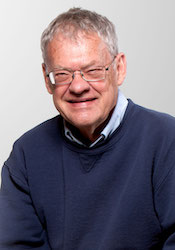
Chuck Stevens
Salk Institute
Salk Institute’s Charles F. Stevens, distinguished professor emeritus, dies at 88
A pioneer in neuroscience, Stevens served on Salk’s faculty from 1990 to 2018
Every donor who contributes over $100 to CARTA is eligible to receive a full-color, annual CARTA calendar if they choose. To give to CARTA and claim your calendar, see CARTA's supporter information. A digital version of the 2023 calendar is also available for free download.
As CARTA's gift to you, Program Coordinator, Jesse Robie, has crafted new 2023 virtual backgrounds from beautiful photographs that he took during CARTA's field course. You can download these images for FREE!
CARTA’s quest to explore and explain the human phenomenon is shared by many across the globe, and CARTA connects us all – scientists and philosophers, students and teachers, people with questions and others with answers. Through access to free UCSD-TV broadcasts and archived videos on multiple websites, the global CARTA community grows with each lecture that is experienced and passed forward. Help us preserve this free flow of information about what it means to be human. Your one-time or recurring donation of $20, $35, $50 or more helps us to keep CARTA’s symposia free for all to attend and view online. Contact Jesse Robie (858-246-0846 or jrobie@health.ucsd.edu) for more details regarding how you can support CARTA's mission.
Click the button below to begin your 100% tax-deductible donation:
Connect via social media with CARTA enthusiasts and members from around the world.
